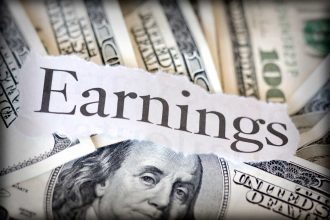By Ann Saphir
SAN FRANCISCO (Reuters) – Two more U.S. interest-rate hikes this year is a “very reasonable” projection, San Francisco Federal Reserve Bank President Mary Daly said, but given how fast rates have risen already and how close they are to where they probably need to be, it’s better to move more slowly and carefully than before.
“It is, in my judgment, prudent policy… to slow the pace of policy as you near the destination,” Daly told Reuters in an interview late on Thursday.
Unlike last year, when the risk that inflation could spiral out of control trumped that of slowing the economy more than needed, the risks of doing too little on rates versus doing too much are now “about balanced,” she said.
“I want to make sure that we balance those risks on both sides, of under- or over-tightening,” Daly said. “Adding another six weeks to our decision space, to me that seems optimal, and prudent.”
Last week Fed policymakers decided to hold the policy rate steady at the current 5%-5.25% range, interrupting what had been a string of 10 straight increases aimed at stomping inflation. But with slow progress on easing price pressures, a majority of Fed policymakers also believe that the rate will need to get to 5.5%-5.75% before the end of the year.
To Daly, the decision continues a slowdown in the Fed’s rate hike pace already underway, as the central bank went from hiking in 75-basis-point increments for much of last year, to a half-point hike in December, and quarter-point hikes this year.
As for what’s next on the immediate horizon – the Fed’s meeting in late July – Daly remains uncommitted. It will depend on what she learns from community and business contacts, as well as from official economic data. “I want to maintain optionality, because I think that’s prudent.”
Daly said her community advisory council and other business contacts have told her their biggest issues are too-high inflation, and ongoing labor shortages.
Inflation by the Fed’s preferred measure, the personal consumption expenditures index, is running at 4.4%, down from the peak last summer of 7% but still more than twice the Fed’s 2% target. The unemployment rate has crept up to 3.7% but is lower than the 4% rate Fed policymakers estimate is consistent with a fully employed American workforce on a sustainable basis.
“Right now we are really missing on our price stability goal, and that miss is not trivial,” Daly said
“What I want to do, while we resolutely work to restore price stability – give these people back some peace of mind, and lives and livelihoods – is make sure we are doing it as carefully as we can so we don’t end up inadvertently, in our rush to do it today, trip the economy up into an unforced error.”
Also on people’s minds, she said, is the worry that the housing market has bottomed and rents are potentially reaccelerating.
Still, she said, other data suggests inflation is headed in the right direction, with declines in both the frequency and magnitude of price changes by businesses, and a decline in short-term inflation expectations.
Banks, meanwhile, are being “thoughtful” about their lending and “careful” about their balance sheets, she said. While credit tightening so far is still consistent with what she would have expected just from a higher Fed policy rate, she said, she is still mindful that it could worsen in a delayed effect from the banking turmoil this past spring.
That’s one more reason, she said, to slow down on rate hikes.
“Taking a slower pace as we approach our destination …means we save many Americans from us either stopping short and wishing we had done more, or going too far and wishing we had done less,” Daly said.
Compared with projections made in March, Fed policymakers see faster growth, a smaller rise in the unemployment rate, and a shallower drop in inflation, all reflections of generally stronger-than-expected data since then.
“No wonder there’s a couple of extra rate hikes,” Daly said. “More tightening may be required to get the economy sustainably back into balance. But do I know that? No….we are going to have to find the terminal rate by looking at the data.”
Two more quarter-point rate hikes this year, Daly said, is “a very reasonable projection at this point,” she said. “But no decision, for me, has been made.”
“If I knew that we needed to raise, and I was really confident in that, then I would of course have proposed something different, have supported something different,” at the Fed’s June meeting, she added. “But I’ve been a strong proponent of standing pat and dialing back the pace, and that’s because as we near the destination we become less certain, without more data, about what needs to be done.”
Read the full article here




